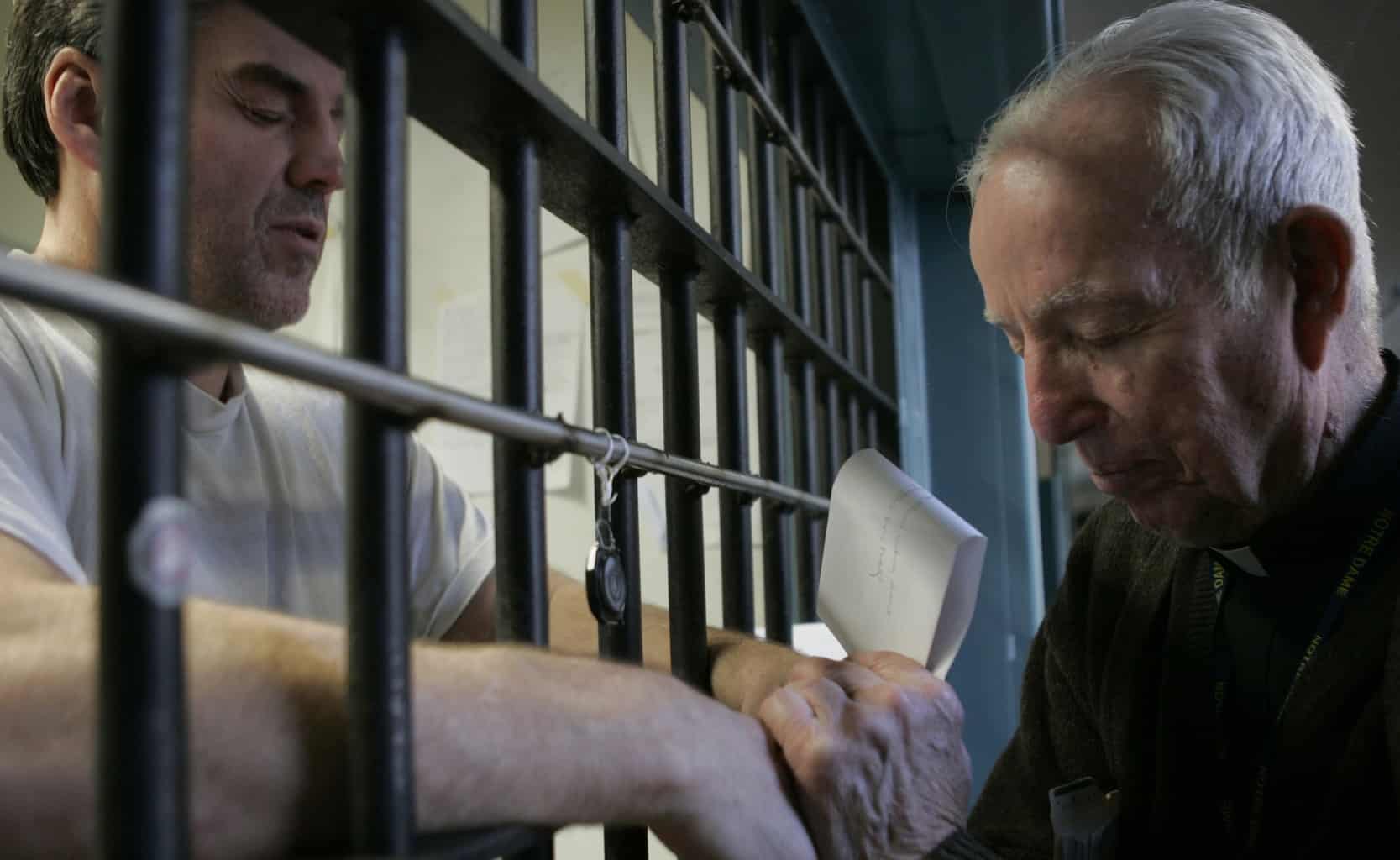I’ve only been in L.A. for a couple of weeks, if I’m being honest, I’m already numb to the tents and RVs that some Angelinos call home. It’s a hot day as I drive with Fr. Mike Kennedy, SJ to South Gate, a small city in Los Angeles County, California. As we drive from the Jesuit community at Loyola Marymount University, we pass homeless encampments that have sprung up in parks and under freeway overpasses all throughout L.A. This morning, I ignore what’s happening outside the car because I’m too wrapped up in trying to get the cold air flowing in our standard-issue Jesuit Toyota.
After what seems like hours in morning traffic, we arrive at the offices of the Jesuit Restorative Justice Initiative (JRJI), where I’m spending the summer on assignment. JRJI was founded by Fr. Mike to bring Ignatian spirituality to men behind bars. My job this summer is to read and respond to reflections written by Californians who are incarcerated.
The first letter I read is from a man named Tom who is in prison for killing his girlfriend. (Like the other names in this article, Tom’s is a pseudonym and the details of his crime have been altered so that he can’t be identified). As I begin to read the letter, my first reaction is judgment. How could this guy kill his girlfriend? Of course he’s in prison. That’s probably where he belongs.
Then, a few lines later, Tom responds to the jury that has taken up residence inside my head. In fact, he says exactly what I’m thinking. How could I kill my girlfriend? Of course I’m in prison. That’s where I belong. But Tom’s self-accusations don’t stop there. How can God ever forgive me for this? How can I ever forgive myself for this?
It’s his last question that stops me. His writing is full of the hard stuff of self-help work: pain, trauma, and remorse. But there’s something deeper going on. Bubbling up from beneath his writing is a desire for something more, for the forgiveness, healing, and transformation that we call God’s mercy.
The truth is that, despite my own self-involved and judgmental attitudes, reading the personal writing of incarcerated men is a privilege. In writing these reflections, these men give me access to the most intimate parts of their souls. Whether it’s Tom’s struggle to comprehend God’s unconditional love or Jack’s battle with the darkness of life behind bars, each of these men bares their soul. As the day goes on, the jury that’s in my head takes a recess. In its place is silence and a warm feeling of compassion.
Reading these letters is my window into God’s soul. If I’m so deeply moved by the lives and struggles in these letters, I can’t help imagining how much more God is moved. Recently a religious sister told me that God doesn’t judge people; God cares for people. That’s been my lesson at JRJI, what Fr. Mike calls “deep sea diving.” God invites us into encounters, sacred moments in which we can glimpse (through sin, division, and wounds) the sacred divinity that dwells in every person.
After a day of reading letters, I find myself leaving the JRJI office to drive back to the Jesuit Community with Fr. Mike. Once again, we drive past a seemingly endless parade of homeless encampments. I’m still hot, and the car’s air conditioning still seems to blow air that’s too warm. But after reading these letters all day, something in me has changed. When God draws us close, we stop judging and start caring.
_______________________________________
Photo from Catholic News Service


